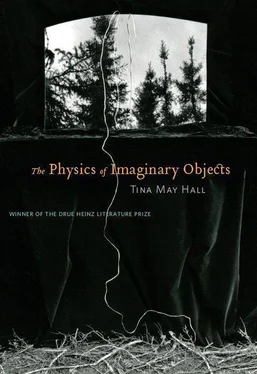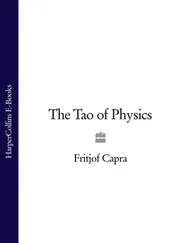Tina Hal - The Physics of Imaginary Objects
Здесь есть возможность читать онлайн «Tina Hal - The Physics of Imaginary Objects» весь текст электронной книги совершенно бесплатно (целиком полную версию без сокращений). В некоторых случаях можно слушать аудио, скачать через торрент в формате fb2 и присутствует краткое содержание. Год выпуска: 2010, Издательство: University of Pittsburgh Press, Жанр: Современная проза, на английском языке. Описание произведения, (предисловие) а так же отзывы посетителей доступны на портале библиотеки ЛибКат.
- Название:The Physics of Imaginary Objects
- Автор:
- Издательство:University of Pittsburgh Press
- Жанр:
- Год:2010
- ISBN:нет данных
- Рейтинг книги:5 / 5. Голосов: 1
-
Избранное:Добавить в избранное
- Отзывы:
-
Ваша оценка:
- 100
- 1
- 2
- 3
- 4
- 5
The Physics of Imaginary Objects: краткое содержание, описание и аннотация
Предлагаем к чтению аннотацию, описание, краткое содержание или предисловие (зависит от того, что написал сам автор книги «The Physics of Imaginary Objects»). Если вы не нашли необходимую информацию о книге — напишите в комментариях, мы постараемся отыскать её.
The Physics of Imaginary Objects,
The Physics of Imaginary Objects — читать онлайн бесплатно полную книгу (весь текст) целиком
Ниже представлен текст книги, разбитый по страницам. Система сохранения места последней прочитанной страницы, позволяет с удобством читать онлайн бесплатно книгу «The Physics of Imaginary Objects», без необходимости каждый раз заново искать на чём Вы остановились. Поставьте закладку, и сможете в любой момент перейти на страницу, на которой закончили чтение.
Интервал:
Закладка:
The palm reader tells her how to find an egg. She tells her to go out the back door and to make a cup with her mouth. The palm reader tells her to walk until she finds running water. Her hand is still on the table. Her skin is listening. Her skin knows about water. Her skin knows about scrubbing. Her skin knows how to
It is hard to make a clean meal. She finds a back door. She walks for a long time. She walks for a long time but doesn't find water. She only finds a highway. Sometimes a highway can be a river. Sometimes a cat can be an eclipse. She hangs her feet in the water. She hangs her feet in the water to search for smooth stones. The water is too dirty to see through. She has to search by touch.
She remembers the piece of hair and makes a line of it. She remembers the pills and makes bobbers of them. A newspaper man on the median is busy selling disaster. He gives her a lump of grief that has hardened at the bottom of the canvas pocket at his waist. He gives her a hard lump of grief to use as bait. It rings like a coin in the river. She makes a cup with her mouth.
She hangs her feet in the water to feel the stones rolling. She hangs her feet in the water to search by touch. She sees silver. She sees silver spinning down the river. She sees silver like stars. She sees the lures that other people cast. She sees a lot of silver. It is hard to catch anything clean. The river is polluted now. It is dangerous to eat from it.
The river hides things in its wrinkles. She pulls the piece of hair in and throws it back out. She pulls the piece of hair in to check her bait. She pulls the piece of hair in and sees a hard lump of grief. It is a hard enough lump to last for a while. It is hard enough to last for a while even in water.
The sun goes away. Her kneecaps forget to be quiet and sigh at the darkness. Her kneecaps sigh at not having to hide anymore. Her kneecaps count their wrinkles. The only light is from stars. She sees stars streaming by her. She sees stars like silver. She sees stars like teeth, like teacups, like eggs. She sits still, and the stars move and flash around her.
They don't spell anything. They don't remember anything.
She makes a cup of her mouth and the egg flesh fills it. She bites down hard and the yolk breaks. A million lovely yellow pieces of yolk melt onto her tongue. Eating an egg is like dying — it is so beautiful, all on its own, without any help. The egg in her mouth is a blessing of flesh and salt and yellow. The eggs under her feet roll like stones. The egg in her hand is as pure as the heart of a sister, white and hard, strong egg, like a star, like a pearl, grown up around its powdery secret.
Faith Is Three Parts Formaldehyde, One Part Ethyl Alcohol
Rosa keeps her finger in a jar on the nightstand. In the morning, it twists to feel the sunlight. She watches its gentle convulsions and holds her other fingers up to share the warmth. Since she cut off her finger, she has worked in the diocese business office, filing and answering phones. Mostly, she answers questions from parents about the parish schools and fields requests for priestly appearances. While at work, she doesn't think about her finger too much. It is just her left pinkie finger; she can still type seventy-five words a minute. In fact, some people don't even notice it is missing. Those who do usually look appalled and ask, almost reverently, how it happened. Then she has to lie, all the while praying for the Lord to forgive her.
She used to carry the finger with her in a large shoulder bag, the jar wrapped carefully in a bath towel. For a while, she needed it with her all the time. She would take it out at work when no one else was around and in restaurant bathrooms to assure herself that it was still there, that it hadn't dissolved, that the glass of the jar hadn't cracked, leaving it withered and gray. She never showed it to anyone. This was partly because she didn't want anybody to know about it. Cutting it off had been enough to make the nuns expel her from the convent, even though she was, by their account, the most promising novice they'd seen in years. If the fathers found out she had kept it, she would probably be excommunicated. The other reason she never showed anyone is because she was afraid that sharing it would diminish its potency. Her severed finger is a miracle, a divine link. Every time she unwrapped it in the darkness under her desk or in the chill of a bathroom stall, it would glow love. It is a piece of her that is always praying, a sign of the preservative power of God's grace.
She worried so much that she finally stopped carrying it with her. During the day it drifts at the edge of her imagination, two and a half inches of waxy faith suspended in a globe of silvery liquid. At night, she dreams of watery expanses and moons shaped like fingernails.
One Thursday in April, a man in his thirties enters the diocese office a few minutes before closing. He crosses to Rosa's desk and stands in front of her, apparently studying her nameplate. His silence makes her nervous, and she tucks her left hand under her thigh before asking how she can help him. He doesn't speak, and she wonders whether she should try to get past him to the outside door or dash into the copy room behind her where her most lethal weapon would be a five-gallon bottle of toner. Just as she starts to pray to the Lord for divine intervention or at least a little timely guidance, the man pulls a small silver box from his pocket, parts the edges of his collar, and holds the box to the bit of clear tube that protrudes from his throat. “Rosa?”
She thinks it is the most beautiful and terrifying sound she has ever heard. It is a cross between a whisper and a deep bass with overtones of metal, but it is not mechanical. It is a sound she imagines stones make when mating or dying. He repeats, “Rosa?” Again the sound amazes and humbles her, provokes a feeling she has only experienced after praying for hours, late at night, when the other nuns were sleeping and she was alone in the cold arch of the chapel. There is an almost sexual tightening of her abdomen, a powerful contraction deep in her stomach.
“Yes,” she whispers.
“I didn't mean to frighten you, it's just that this is the only way &”
He says he has a spiritual problem. His voice still startles her, but she is becoming used to it and its effect on her; however, this question throws her into a panic because all of the priests are out of town for a convention on venial sin except for Father O'Rourke who doesn't approve of conventions and went to Las Vegas instead for the weekend. The man looks distressed by this.
“Well, then maybe you can help me. I guess it is sort of an administrative matter.”
“I'm not really an expert,” Rosa says. “Don't you think you'd better wait for the fathers to get back?”
The man plucks at his collar in agitation. “If I don't resolve this now, I'm afraid I'll lose my nerve.”
She wants to say something reassuring, but her stomach growls and the man smiles and says, “I'm keeping you from your dinner.” He holds out his left hand because he is still clasping the silver box to his throat with the right, and she hesitates but finally gives him her left hand to shake and is surprised when he doesn't say anything about her missing finger. That's when she finds herself asking him if he'd like to eat with her at the deli next door so they can talk more about his problem.
Over corned beef and coleslaw he asks about her missing finger, and because he asks so casually, she tells him the truth. He is the first person she has told the story. Everyone else who knows the truth heard it from the nuns who found her in the kitchen, on her knees, her severed finger beside her on the stone floor, her hands clasped, forehead pressed against the avocado metal of the refrigerator. They said she was in rapture; the doctors called it shock. She tells him how it didn't bleed at all and how this disappointed her, how even at that time, even when she was having the most meaningful religious experience of her life, she felt somehow cheated by the absence of blood. She tells him without prompting, almost shyly, about the voice she heard before it happened, except it wasn't a voice. It was more a feeling, a shifting of weights and forms around her. That's how she explains it after he asks if she wants cheesecake — it was as if her perception of everything slipped for a moment and she knew what she was supposed to do. He asks only one question.
Читать дальшеИнтервал:
Закладка:
Похожие книги на «The Physics of Imaginary Objects»
Представляем Вашему вниманию похожие книги на «The Physics of Imaginary Objects» списком для выбора. Мы отобрали схожую по названию и смыслу литературу в надежде предоставить читателям больше вариантов отыскать новые, интересные, ещё непрочитанные произведения.
Обсуждение, отзывы о книге «The Physics of Imaginary Objects» и просто собственные мнения читателей. Оставьте ваши комментарии, напишите, что Вы думаете о произведении, его смысле или главных героях. Укажите что конкретно понравилось, а что нет, и почему Вы так считаете.












